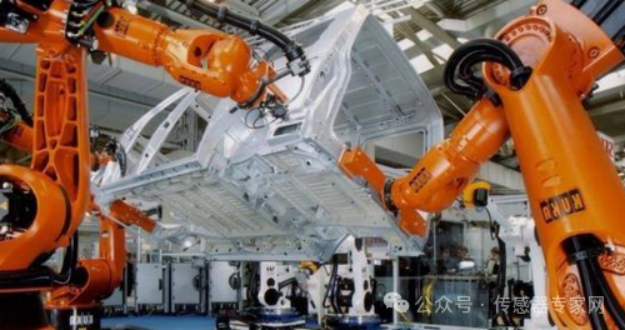In today's era of rapid technological development, intelligent manufacturing has become an important direction for industrial transformation and upgrading. As a key component of intelligent manufacturing, sensor technology plays a crucial role and is hailed as the cornerstone of intelligent manufacturing. This article will delve into the importance of sensor technology and analyze its specific applications and roles in intelligent manufacturing.

The close relationship between intelligent manufacturing and sensor technology
Intelligent manufacturing is a new production method that integrates knowledge engineering, manufacturing software systems, robot vision, and robot control technologies to model the skills and expert knowledge of manufacturing technicians, in order to achieve small batch production of intelligent machines without human intervention. The proposal and development of this concept signify that industrial manufacturing has entered a new era of intelligence. Sensor technology, as one of the important pillars of information technology, is an indispensable key technology for achieving intelligent manufacturing.
A sensor refers to a device or apparatus that can sense a specified measured object and convert it into a usable output signal according to a certain pattern. These measurements can be physical quantities, chemical quantities, or biomass, and the output signal is usually electrical quantity. Sensors utilize physical, chemical, or biological effects to convert measured information into electrical signals, providing a foundation for information acquisition, transmission, and processing.
The Application of Sensor Technology in Intelligent Manufacturing
1. Data collection and monitoring:
Sensor technology is the core of data collection and monitoring in intelligent manufacturing processes. By installing various sensors on production equipment, process flow, and products, key parameters such as temperature, pressure, displacement, and speed during the production process can be collected in real time, achieving precise monitoring of the production process. These data not only provide a basis for
production management and decision-making, but also lay the foundation for subsequent data analysis and optimization.
2. Fault diagnosis and prediction:
Intelligent sensors not only have data collection functions, but also have logical judgment and data processing capabilities. Through built-in algorithms and models, sensors can analyze and calculate the collected data, achieving timely diagnosis and prediction of equipment failures. For example, in the manufacturing industry, engine performance evaluation, fault diagnosis, and life prediction systems based on intelligent sensing technology can monitor the operating status of the engine in real time, detect potential faults in advance, and take corresponding measures for prevention and maintenance.
3. Intelligent control and optimization:
Sensor technology can also be combined with automation control systems to achieve intelligent control and optimization of the production process. By collecting and analyzing production data in real-time, sensors can adjust production parameters, optimize process flow, and improve production efficiency and product quality. For example, in a smart factory, sensors can monitor the operating status of the production line in real time and adjust the production pace and resource allocation according to actual needs, achieving intelligent and adaptive production processes.
4. Internet of Things and Intelligent Interconnection:
With the continuous development of IoT technology, the application of sensors in intelligent manufacturing is becoming increasingly widespread. By combining sensors with IoT technology, interconnection and data sharing between devices can be achieved. This not only improves the transparency and traceability of the production process, but also provides strong support for the digital transformation of intelligent manufacturing. For example, an intelligent logistics system based on RFID technology can achieve real-time tracking and positioning of goods by reading information on sensor tags, improving logistics efficiency and accuracy.
Core Technologies and Future Trends
Sensor technology can achieve the above functions without the support of core technologies such as sensing materials, MEMS chips, drivers, and application software. Especially MEMS chips, due to their small size, light weight, low power consumption, and high reliability, have become important carriers of intelligent sensors. In recent years, with the continuous development of MEMS technology, the
performance of smart sensors has also been significantly improved, providing more reliable and efficient technical support for intelligent manufacturing.
In the future, sensor technology will continue to develop towards high performance, high reliability, multifunctionality, and intelligence. On the one hand, by continuously optimizing the performance of sensing materials and MEMS chips, the accuracy and stability of sensors can be improved; On the other hand, by introducing advanced technologies such as artificial intelligence and big data, the intelligence and adaptability of sensors can be enhanced. This will provide more comprehensive and powerful technological support for intelligent manufacturing, promoting the development of industrial manufacturing to a higher level.
Summary: Sensor Technology - The Future Driver of Intelligent Manufacturing
In summary, sensor technology, as the cornerstone of intelligent manufacturing, plays an important role in data collection and monitoring, fault diagnosis and prediction, intelligent control and optimization, as well as the Internet of Things and intelligent interconnection. By continuously optimizing core technologies and developing new sensors, sensor technology will provide more efficient, reliable, and intelligent technical support for intelligent manufacturing. In the future, with the continuous development of intelligent manufacturing, sensor technology will continue to play its key role in promoting industrial manufacturing to a higher level. As technology and manufacturing professionals, we should closely monitor the development trends of sensor technology, actively embrace new technologies and applications, and jointly promote the prosperity and development of intelligent manufacturing.
Source: Sensor Expert Network. Reproduction of this article is to convey more information. If there is any infringement, please contact us for deletion



